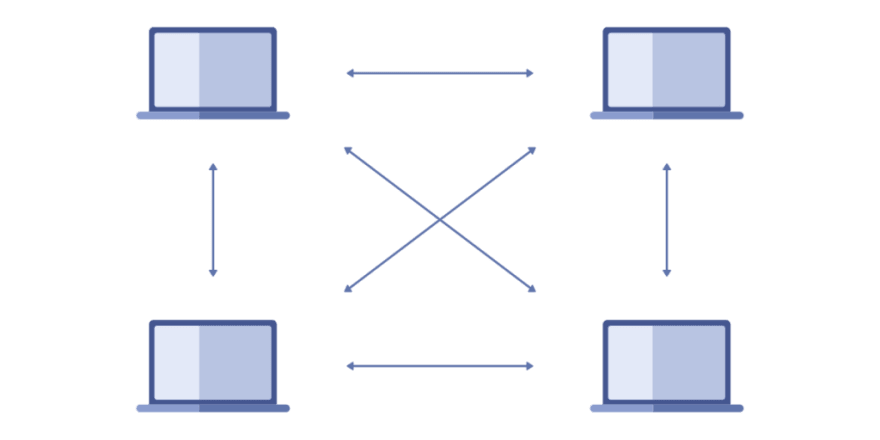What is Blockchain?
it is a permanent database that is shared across a lot of computers around the world which makes it a chain of networks connected together that forms a blockchain.
blockchain was made popular by an anonymous person, Satoshi Nakamoto. when he released Bitcoin Network back in 2008. Bitcoin is a cryptocurrency network that handles the transfer of BTC assets across the network, without a need of a middleman or authority. while ensuring that the network itself is secure and cannot be hacked.
overtime a lot of other cryptocurrencies were made after getting inspiration from Bitcoin, another popular cryptocurrency is Ethereum.
State Management
in blockchain, we store data like a spreadsheet which contains a list of all transactions, the content of that spreadsheet at any given time will be called as "state" of that database. hence state management is simply the process of updating the data with new transactions and recording it for everyone to see.
Nodes
Node is basically a device that forms the infrastructure of blockchain. all nodes on a blockchain are connected to each other and they constantly exchange the latest blockchain data with each other so all nodes stay up to date. A full node is basically a device (like a computer) that contains a full copy of the transaction history of the blockchain.
*Use of Node: *
- checks if the block of transactions is valid to accept or reject it.
- save and store the block of transactions in the history of blockchain transactions.
- broadcast and spread this transaction history to other nodes to sync them all with blockchain.
there is also another kind of node, which is called a mining node( aka miners), These are the nodes that can add transactions to a blockchain. Every node in the blockchain network has an option to become a mining node. The process of adding transactions to a blockchain is called mining.
Decentralization
because we are storing the data in peer to peer network of nodes, blockchain is basically a decentralized network. which has great advantages over a decentralized network.
for example:
- Data breaches are common which exposes a lot of data
- Centralized authorities can censor and shut down speech
- Reliance on a central authority means upstream problems affect downstream consumers
on the other hand, decentralized networks bring a lot of benefits:
- No censorship as there is no single authority or middleman that can censor you
- No downtime as the overall network is running across 1000's of nodes across the globe
Use Cases:
- cryptocurrency
- smart contract
- decentralized finance
- gaming
- supply chain tracking
- decentralized governance
- verifiable ownership of assets and many more
Resources
here are some good resources to understand blockchain.







Top comments (1)
My focus is on making a contract with a senior blockchain developer to add smart contracts for my project. Additionally, in the future, I plan to launch my own token, similar to Shiba token or Mega Trump tokens. Therefore, I am particularly interested in candidates with a deep understanding and experience in blockchain development and the Web3 space.
I am building a decentralized finance dashboard now.
You can check out the reference website here.
zapper.xyz/
Please feel free to reach out me on telegram if you are interested in my project.
t.me/thunder0828